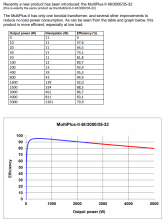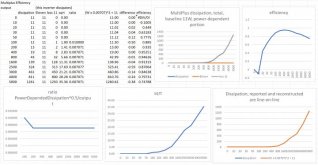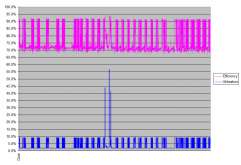John Frum
Tell me your problems
- Joined
- Nov 30, 2019
- Messages
- 15,233
Victrons are top shelf and have demonstrated ~90% efficiency.The “conversion penalty” at 48v will be quite a bit lower than 15%. For a Victron unit, I can tell you it will be 8% or less.
Anyone want to test their mpp 48 volt all in one unit?





